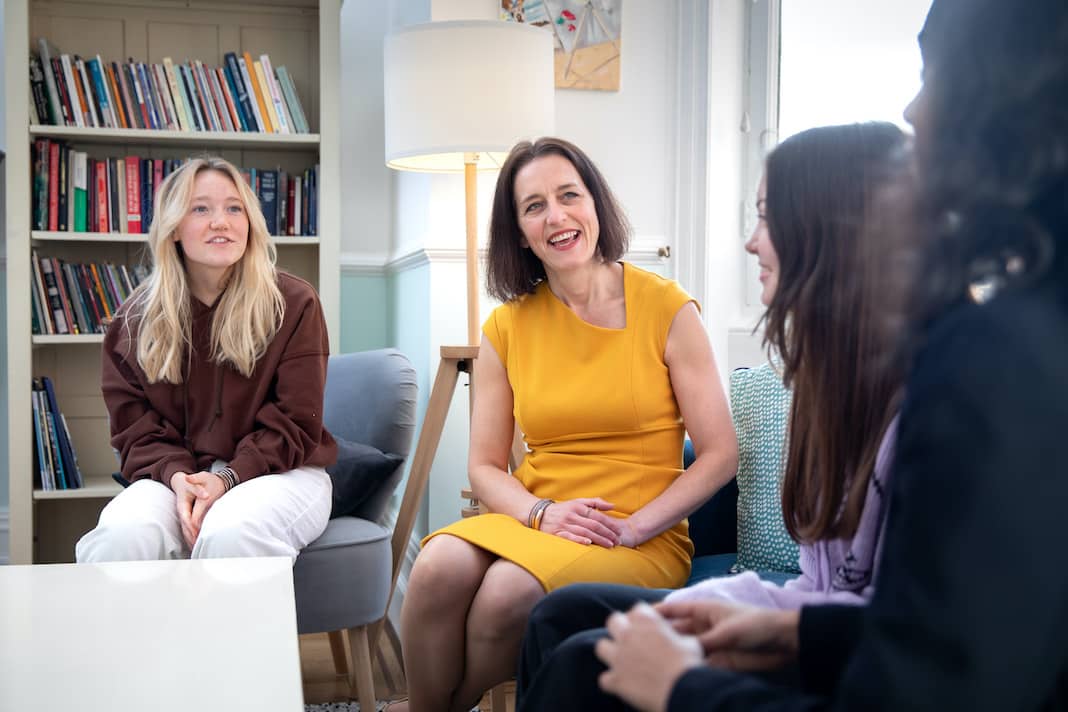Faith Hagerty, Head of More House School in Knightsbridge, discusses the value of facilitating opportunities for young people to be entrepreneurs
For many of us, the mechanics of business have been brought centre stage by the reality show, The Apprentice, which doesn’t perhaps present the entrepreneur in the best light. Do we want our young people to believe that the most vital characteristics of a successful entrepreneur are to be tough talking, backstabbing and fiercely competitive? The last point is perhaps an important one, but at the heart of successful business is surely humans and how well we communicate with each other. Alan Sugar himself puts it down to self-belief, calling it a ‘critical skill for business success’. This, amongst other things, is what we have a duty to cultivate in our students, whether they are budding entrepreneurs or not.
Self-confidence and a skilled use of persuasion are vital when it comes to selling in any form – be that pitching ideas, raising investment or selling to the public. Understanding our audience is key, whether that is simply knowing their spending habits, or delving into more complex psychological factors that make them tick. All of these skills are drawn out in the study of English Language, Maths, Business and Psychology, but creative ‘free’ thinking is surely where it’s at, bearing in mind that this is where the big ideas come from. Does this not mean that any learner, in terms of the traditional measures of ability, could – with the right encouragement – have ‘that’ idea? That thought is a wonderful leveller.

Being exposed to entrepreneurial experiences during our formative years makes it much more likely that we will see starting up a business as a viable career choice and a vital driver of growth and innovation within our economy. Doing so is always a balance between risk and reward and we, of course, risk less in our youth as we have less to lose. We generally become more risk averse as we age, so logically any entrepreneurial programme will be more effective the younger the participants.
“Exposure to entrepreneurial ventures is surely what we need when preparing our young people to be the ethical leaders of tomorrow”
At More House, opportunities are carved out in order to develop these entrepreneurial skills. Last summer, Lower Sixth students were given the responsibility of launching More Summer, the school’s new holiday club provision for 10 to 13 year olds. They were given a brief and then the pupils took the lead on project management, finance, marketing, social media management and parent communication. They came away with a real-life understanding of how to build profit margins, as well as the experience of managing a business initiative from conception through to fruition. To cultivate creative thinking, we also offer Enrichment and City Curriculum projects across the school, as well as our Life Skills Programme, which gives sixth form pupils an additional pathway alongside A levels.
As we see AI become a key player in the development of new businesses today, behind that technology will still be the entrepreneur making things happen. Exposure to entrepreneurial ventures within the structures of our schools is surely what we need when preparing our young people to be the ethical leaders of tomorrow.
More House School morehouse.org.uk
Further reading: Hurst College on shifting perspectives towards Higher Education
You may also like...























